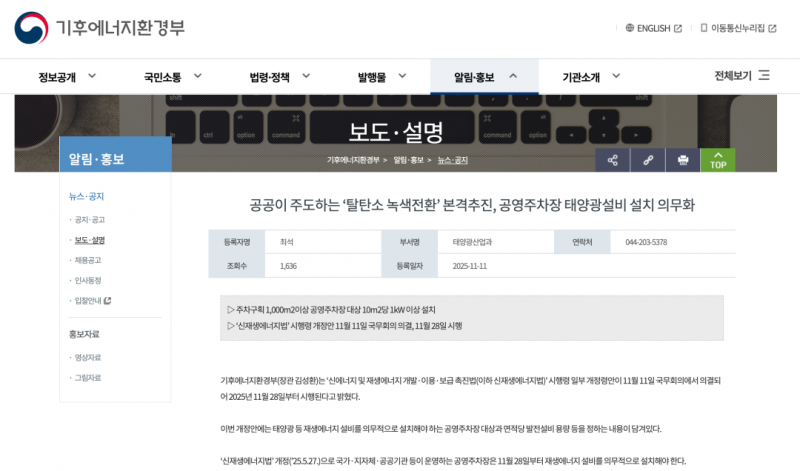PVTIME – From 28 November 2025, South Korea’s Ministry of Climate, Energy and Environment will require all public car parks with an area of 1,000 m² or more to install at least 100kW of renewable energy systems, primarily solar PV.

This follows the revision of the New and Renewable Energy Act in May, which established the legal obligation for the public sector to deploy renewable energy. The latest enforcement decree clarifies its application to car parks operated by the central government, local authorities, and public institutions, marking the first time that South Korea has linked minimum installation capacity to space size in energy policy. This creates a standardised quantitative model for the integration of urban renewables, with the potential for expansion to public buildings, transport hubs, and other urban areas.
Solar PV car park installations offer several advantages, including unobstructed spaces suitable for solar canopies, proximity to demand centres, no additional land use, and improved energy output per unit area. Shen Jin Su, the Ministry’s Renewable Energy Policy Officer, explained that the mandate is a significant step for public institutions to spearhead renewable adoption and enhance land use efficiency, with plans to further expand renewable applications in support of decarbonisation and the green transition.
To facilitate implementation, 11 autonomous governments, including those in the Seoul metropolitan area, will host explanatory sessions from December, alongside providing local authorities and public institutions with implementation and technical guidelines.
This policy reflects a broader urban energy trend, shifting away from reliance on large suburban power plants towards local generation and consumption, and embedding energy infrastructure within existing urban structures rather than constructing standalone facilities.

Scan the QR code to follow PVTIME official account on Wechat for latest news on PV+ES











